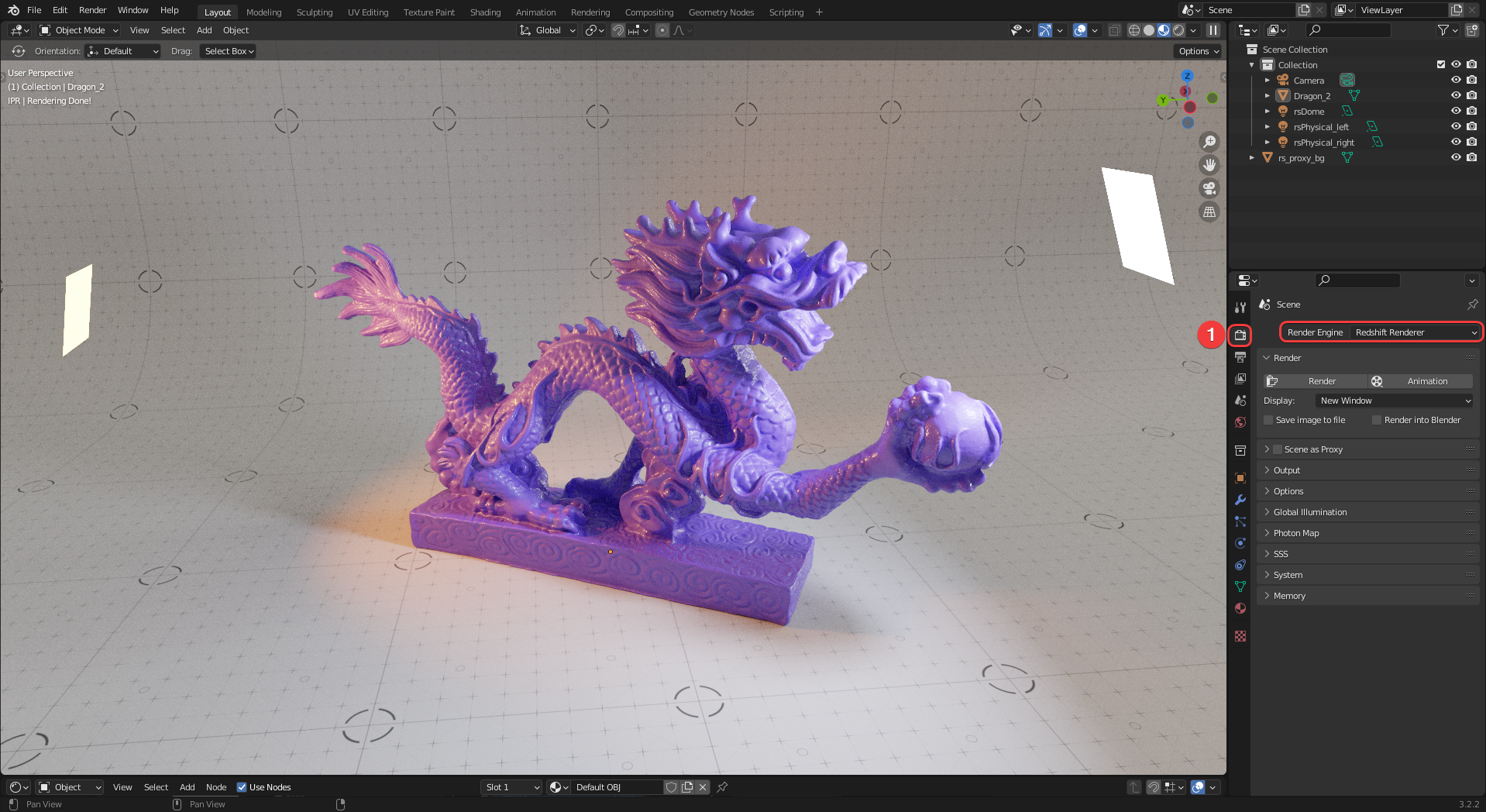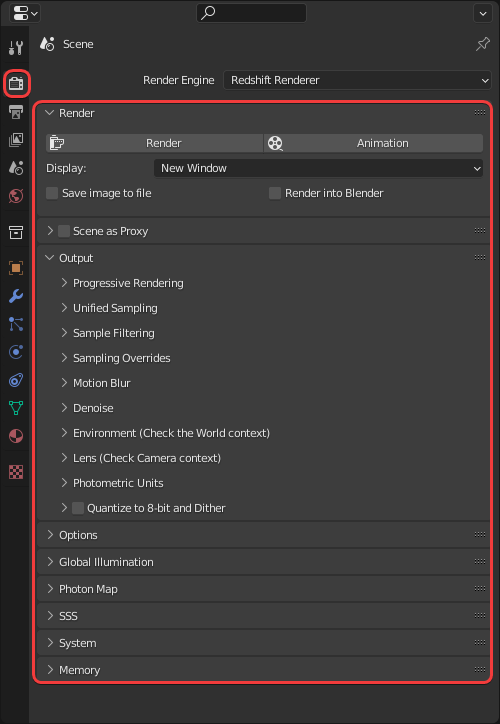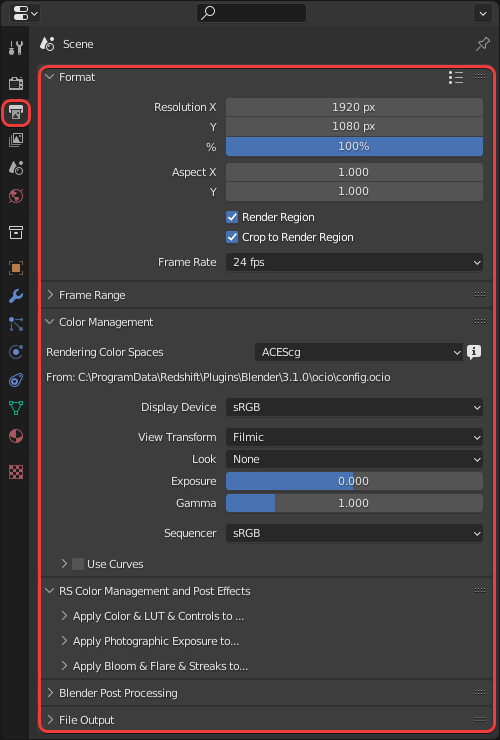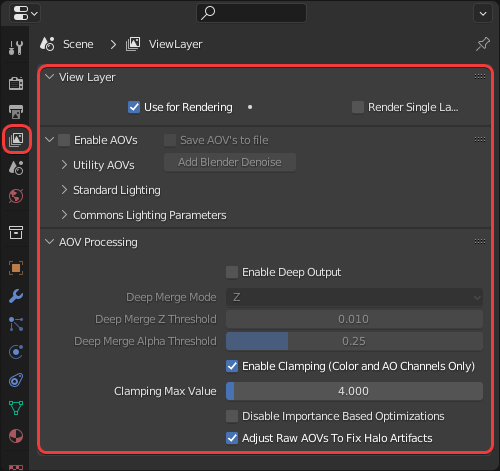
Introduction to Redshift for Blender
Redshift for Blender is currently in development. It supports most of the core Redshift features and shaders but is still missing certain elements like the Redshift Render View and optix and altus denoising.
As such, the Redshift for Blender documentation is also a work in progress and will be improved and added to over time. At this time the docs mostly reflect the same core information that is shared across all Redshift DCC implementations. Blender UI images and workflow information may be missing on pages outside of the Blender pages.
Bugs can be reported in the Redshift Forums and the development status can be followed at the Redshift Trello page.
Supported Versions
Before Redshift can be used in Blender it must be set as the current Render Engine in the Render Properties panel as pictured below.

|
| Setting Redshift as the Render Engine |

|

|

|
| Render Properties panel | Output Properties panel | View Layer Properties panel |
Redshift's primary render settings can be found in these three main areas:
Render Properties - Contains most of the primary Redshift render settings.
Output Properties - Contains settings related to render output like render resolution, color management, and file saving.
View Layer Properties - Contains settings related to Redshift AOVs (render passes).
For more information on AOVs please see the AOVs section.
Some of the section naming does not match up with the current naming of the Redshift render settings found in other DCCs. As Blender development progresses the render settings layout and naming will be updated to match the others, including the implementation of the simplified basic mode.
Explanations of the render settings parameters can be found throughout the Render Options section and the following pages that are relevant to each section.
Output
Options
Optimizations (Cut-off Thresholds, Russian Roulette)
Photon Map
SSS
Memory
Credit to Rich Nosworthy for the scene used in this section.
Credit to Three D Scans for the dragon model used in this section.